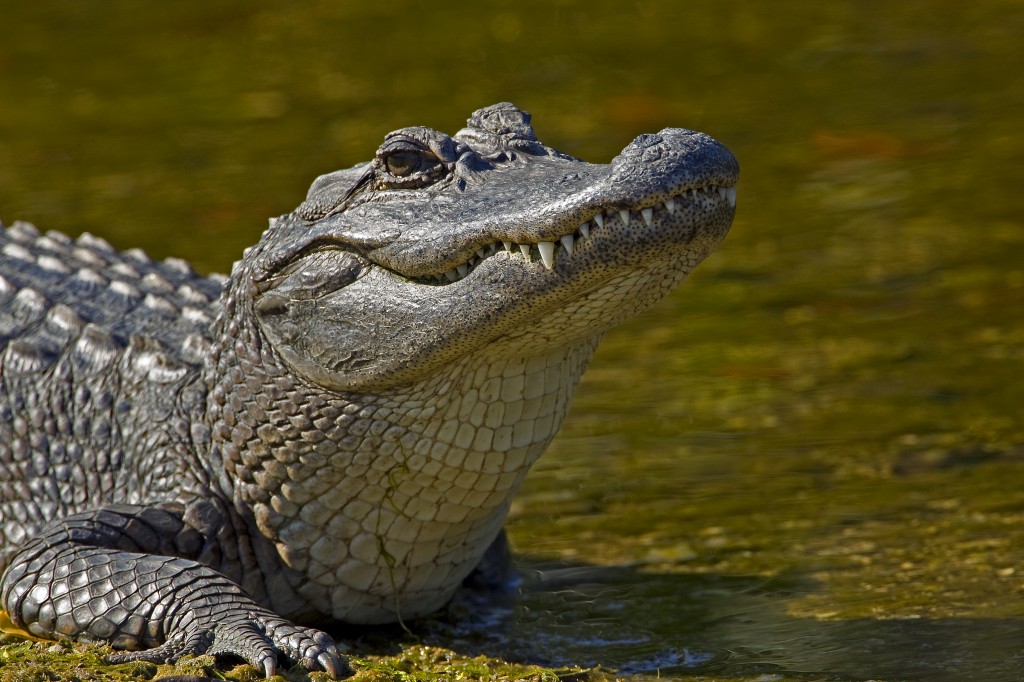<p style="text-align: justify;">Encounters with dangerous wild animals are unlikely to occur when you are out hiking, swimming or otherwise interacting with your natural surroundings. The reason for this is that most wild animals would prefer to stay far away from humans. Occasionally, however, an animal will feel threatened by you and may go on the offensive. Read through this primer of how to react properly to dangerous animals that you might meet in the wild.</p>
<p style="text-align: justify;"><img class="aligncenter size-Correct-Size wp-image-12482" src="https://medusamagazine.com/wp-content/uploads/2015/10/Wilderness-Survival-3-Dangerous-Animals-and-How-to-React-the-Right-Way-640x426.jpg" alt="Wilderness Survival: 3 Dangerous Animals (and How to React the Right Way)" width="640" height="426" /></p>
<h3 style="text-align: justify;">1. Sharks</h3>
<p style="text-align: justify;">It’s possible that if you are surfing or otherwise flailing around in the ocean, you may encounter a shark. The best way to prevent a shark attack is to avoid attracting a shark in the first place. This means staying out of areas where sharks frequent, staying close to shore, and avoiding splashing around and mimicking seals and other prey.</p>
<p style="text-align: justify;">If you should find yourself in close proximity to a shark, stay still. It’s very possible that it will simply swim past you. Keep your eye on the shark, but move as little as possible. When you do begin moving away, swim slowly and without sudden or jerky motions.</p>
<p style="text-align: justify;">Should the shark swim close to you as though it wants to attack, hit it as hard as you can in the eyes or gills. This may deter the shark, as it will see you as a threat and not as food.</p>
<h3 style="text-align: justify;">2. Alligators</h3>
<p style="text-align: justify;">Do you live in the Southeastern United States? If you find yourself in the Deep South or Florida, you may see alligators from time to time. They tend to hang out in swamps, canals and ponds, but can venture into backyards, swimming pools and even the beach!</p>
<p style="text-align: justify;">Thankfully alligator attacks are rare. Stay away from murky water, and you will probably never be in a situation where you are being attacked by a gator. If one tries to chase you, you should be able to easily outrun it on land; alligators are not known for their sprinting or endurance abilities.</p>
<p style="text-align: justify;">If you do find yourself with an alligator clamped onto your leg, however, you are going to need to act fast.</p>
<p style="text-align: justify;">First, if you have a gun handy, now is the time to use it. An alligator kills its prey by drowning it, so you are going to need to shoot it quickly. (It should go without saying that if you are in the wilderness and you’re carrying a gun, make sure it’s in good repair and that you have ammunition ready to go. A discount code for Brownells.com can get you started.)</p>
<p style="text-align: justify;">If you don’t have a gun, go for the eyes. Jam a finger in each eye, and hope the gator releases you.</p>
<h3 style="text-align: justify;">3. Mosquitoes</h3>
<p style="text-align: justify;">Does that one seem like it doesn’t belong in a list of most dangerous animals? The truth is, mosquitoes actually kill a million people per year. Most of these deaths are from malaria, a disease that does not exist in the United States.</p>
<p style="text-align: justify;">Mosquitoes can also carry viruses that can cause encephalitis, or brain inflammation, however, so it’s a good idea to avoid them when possible. Wear long sleeves and long pants if you are out at night in the summer, especially if you are boating or near a body of water. If you have to go out after dark in the warm, humid weather, wear an insect repellant containing DEET.</p>
<p style="text-align: justify;">Most of the time, animals in the wild just want to live their lives without bothering anyone. If you are in the sight of a wild animal, try just staying still or backing away; most of the time, this will cause them to lose interest. If you are about to be attacked by any dangerous wild animal, either use your weapon, if you have one, or go for the eyes or throat to stop the attack in its tracks.</p>

Wilderness Survival: 3 Dangerous Animals (and How to React the Right Way)
